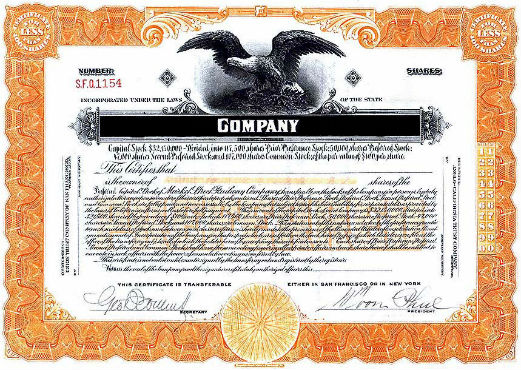By Justin Fundalinski, MBA | February 20, 2018
 Admittedly, this overview of Net Unrealized Appreciation (NUA) is designed to be quick and concise. There are far too many tangents that can be covered in a simple newsletter such as this, and the point of this article is not to educate you on every detail, but to get you thinking whether taking advantage of NUA makes sense financially.
Admittedly, this overview of Net Unrealized Appreciation (NUA) is designed to be quick and concise. There are far too many tangents that can be covered in a simple newsletter such as this, and the point of this article is not to educate you on every detail, but to get you thinking whether taking advantage of NUA makes sense financially.
What is NUA?
NUA is the Net Unrealized Appreciation of employer stock held in an employer retirement plan which under IRS rules allows you to be taxed outside of the retirement plan at preferential long-term capital gains rates rather than at ordinary income rates. What’s all that jargon mean? If you have a qualified retirement plan at your employer that holds stock of that company, you just might be able to save yourself on some taxes.
What is the tax treatment of NUA?
Taxation of NUA distributions is made up of three parts.
- First, any cost basis is taxed immediately as ordinary income upon the initial distribution. In this case cost basis is the value of the shares when initially purchased in the employer plan. Note: this portion could be subject to a 10% early withdrawal penalty.
- Second, the NUA gain is taxable at long-term capital gain rates when the shares are sold. NUA gain is the difference between the cost basis (as defined above) and the actual value of the shares when they are distributed from the employer plan. Long term capital gains rates are 0%, 15%, and 20%.
- Third, the post distribution gains are taxed at long or short-term capital gains depending on your holding period. That is, they could be taxed at capital gains rates or as ordinary income.
Notably, there are some other rules in the tax treatment of the NUA Gain portion.
- NUA gains can be deferred but will eventually be taxed. These gains are not eligible for a step-up in basis at death.
- NUA gains are not subject to the 3.8% Medicare surtax on net investment income.
How do you qualify for NUA tax treatment?
There are a few rules that you must abide by to qualify for NUA tax treatment.
- You must distribute your employer stock from the employer plan “in-kind.” That is, you cannot sell the stock within the plan and transfer cash outside of the plan. You must move the actual shares. If you cannot move the shares you cannot use NUA.
- You must distribute the entire account balance at your employer during a single tax year. That is the employer plan must have a zero-balance come December 31st. Where those dollars end up is up to you. You can, for instance, move all or some of the employer stock to a non-qualified account to take advantage of NUA tax treatment, and move all other holdings to an IRA. There is flexibly here which opens the doors to various planning options.
- The lump-sum distribution (a full distribution of the account in one tax year) must be made after a “triggering event.” Triggering events are death, disability (self-employed only), separation from service (non-self-employed only), or reaching 59½. These are all independent triggering events so if you missed your opportunity for one, all is not lost. For example, if you retire at 55 and take only a partial distribution to fund a vacation the year after retirement you just lost the opportunity to use NUA under the separation from service triggering event. However, you could take the full distribution once you reach 59½, or your children could take it after your death and use the NUA tax treatment.
What are the pros and cons?
The Pros:
- Usually it is very appealing in the near term from a tax perspective as you may be able to realize income/assets out of a retirement plan at much lower tax rate.
- It is not an all or nothing deal. You can pick and choose specific shares of employer stock to benefit yourself the most. This allows for substantial flexibility in planning.
The Cons:
- It may not be as appealing in the long term from a tax perspective as you lose tax deferral and you force immediate taxation on the cost basis portion of the asset (as well as ongoing taxation of dividends and capital gains).
- Often, benefits are highly driven by only two variables.
- Cost basis in the account.
- Low cost basis shares are far more beneficial than high cost basis shares. Just because you have NUA does not mean it is of value.
- Unknown time horizon.
- Will immediate tax benefits outweigh the benefits of tax deferral? Depends on how long you live.
- Cost basis in the account.
It is important that you don’t engage in NUA transactions with out an immense amount of forethought and planning. If you have any questions or if you are interested in our opinion on your NUA scenario please contact us directly.





